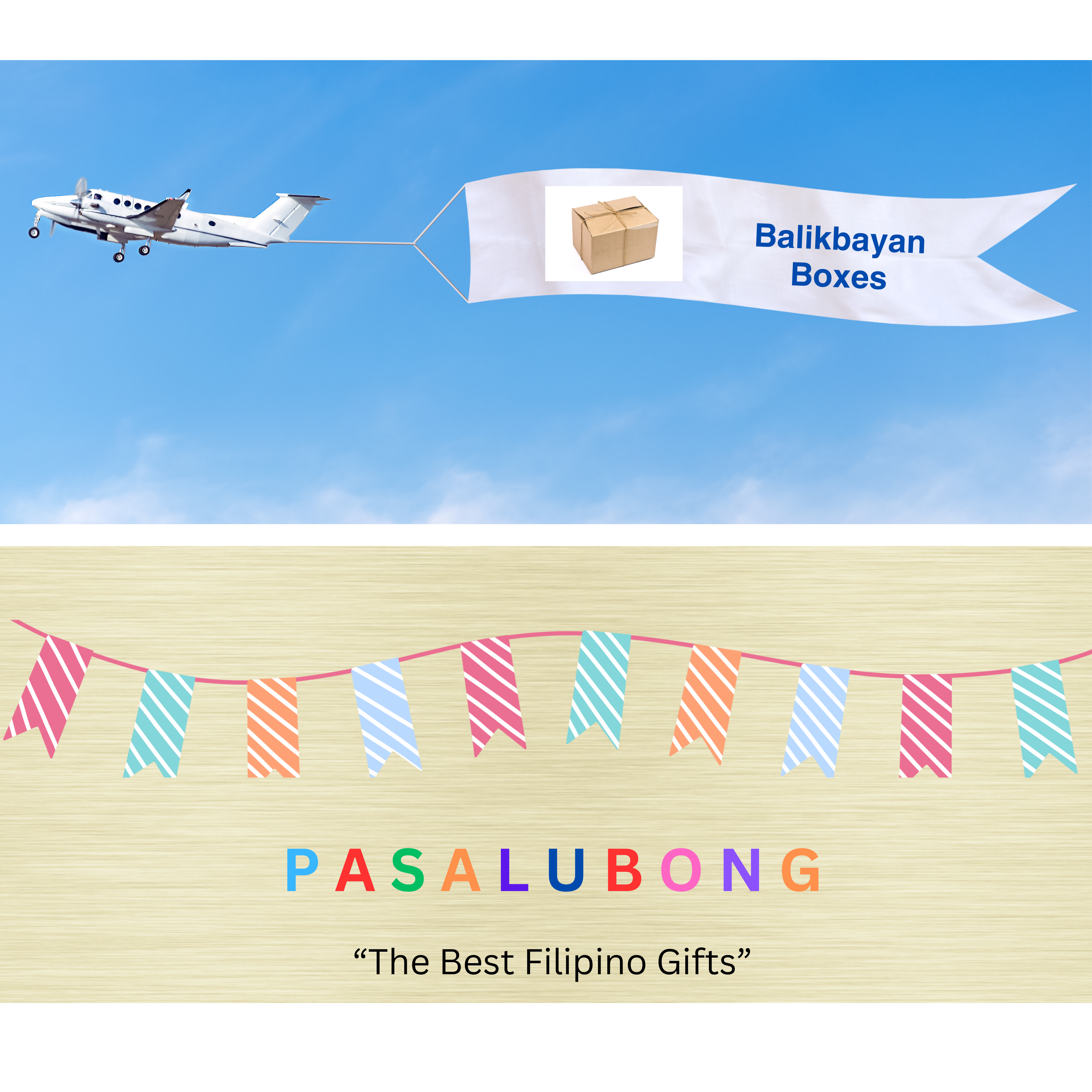Pasalubong and balikbayan boxes signify the affection and connection between relatives and friends. Even if you are not an overseas Filipino, you can participate in this custom by sending a care box or bringing Pasalubong to someone close to you.
Let’s look at what balikbayan and pasulubong mean.
A Balikbayan box is a large cardboard box that Filipinos residing all over the world send to family members in the Philippines. In Tagalog, the term Balikbayan literally means “homecoming.” Aside from its utilitarian function, balikbayan boxes have come to represent the hard labour of Filipino migrants who want to help their family and friends back home. Balikbayan boxes are an essential illustration of the links that unite immigrants to their home country, as well as the importance of your national roots.
This box-delivery phenomena has a melancholy beauty about it. On the one hand, it fosters a remarkable sense of connection across huge distances, but it also serves as a reminder of how many Filipinos have had to leave friends and family behind in order to pursue their dreams.
During President Ferdinand Marcos presidency, the Philippine government began to specifically promote Filipino Americans to visit their familial home towns in the Philippines in 1973. Individuals who did so became known as balikbayan, a combination of the Tagalog words balik, which means “to return,” and bayan, which means “town/settlement.” Subsequent administrations maintained and expanded on this initiative.
While remaining abroad, it became normal practice to place gifts, often household products and other useful objects, in a box. Non-perishable food, toiletries, home supplies, gadgets, toys, designer apparel, or items difficult to find in the Philippines may be included in Balikbayan boxes, regardless of whether the sender believes the recipient would like them. After that, the boxes would be shipped to the Philippines.
Pasalubong (Tagalog for “[something] for when you welcome me”) is a Filipino tradition in which tourists bring gifts from their trip to family and friends back home. Is a variation of pansalubong or pangsalubong. It derives from the root word “salubong,” which meaning “to (welcome),” “to meet,” or “to receive. As a result, “pasalubong” translates roughly as “welcomer” or “something meant for you when you welcome me back.” The word has modest festive meanings, such as rejoicing in the safe return of someone who has been abroad for an extended period of time. Pasalubong can be any gift or souvenir sent back for relatives or friends after a long absence. It can also be any present offered by someone travelling from afar something like food, handicrafts, and other specialties vary by region in the Philippines. These are promoted to local tourists through the pasalubong custom. It is also uncommon for bus stops to have kiosks nearby that sell the specialty pasalubong of the region in which they are located.
Pasalubong is also connected with balikbayan, or Overseas Filipinos returning to the Philippines, and may refer to gifts that migrant workers send home to their families, friends, relatives, or even non-relatives with whom they have a unique bond. Pasalubong is known as tinabuan in Cebu and sinugatan in Hiligaynon in Visaya, two different terms with the same meaning.The Philippine English abbreviation B.H. (for “Bring Home”) is also commonly used.
Giving a pasalubong is a deeply ingrained cultural custom for Filipinos, strengthening ties with friends, family, and immediate family. Giving away pasalubong highlights the joy of being reunited with loved ones and the pleasure of returning home safely. It also demonstrates thoughtfulness. Even though they are not required or even anticipated, forgetting to bring someone a pasalubong might occasionally be interpreted negatively. Gifts for kids are especially valued, and for most Filipinos, receiving pasalubong from a parent when they return home is a treasured childhood experience.
The pasalubong provides as a’sample’ of another region’s cuisine, bridging diverse Filipino cultures. They can also be simple gifts that are likely to be appreciated. Pasalubong, unlike western gifts, is not wrapped and is presented as is. The individual who offers the pasalubong may freely consume the gift.
Have you sent your balikbayan boxes?
So, how about you? Have you bought your pasalubong?

